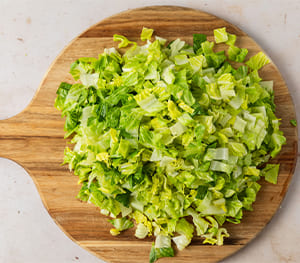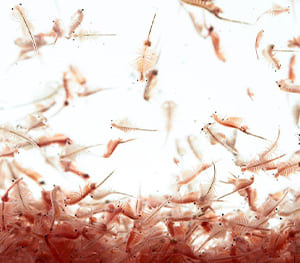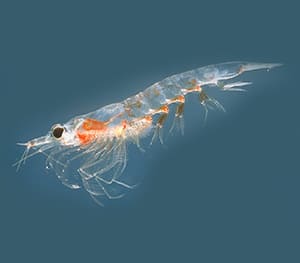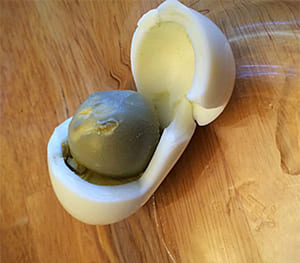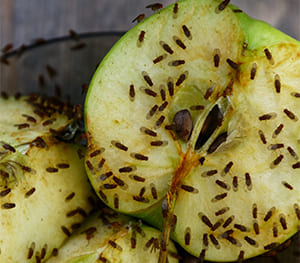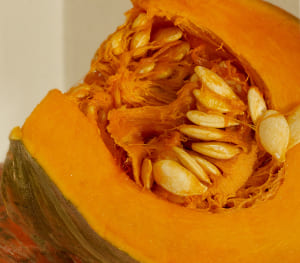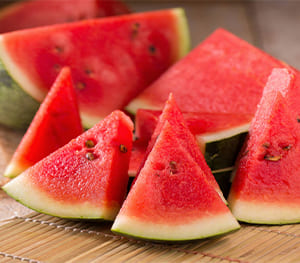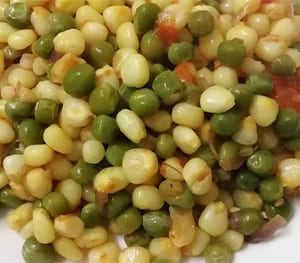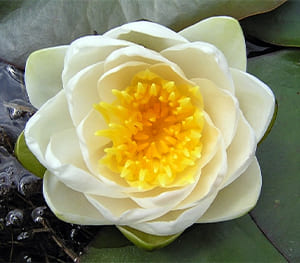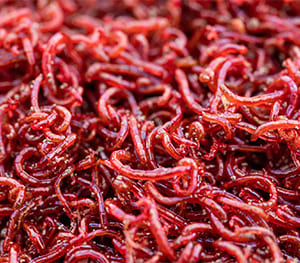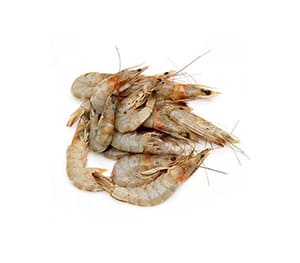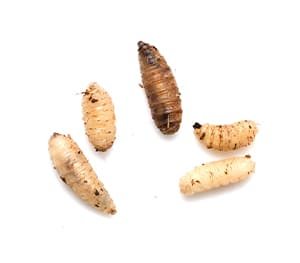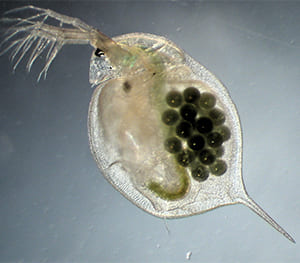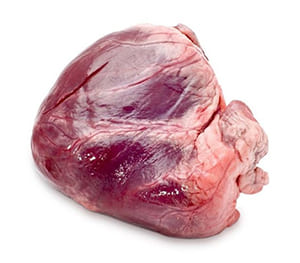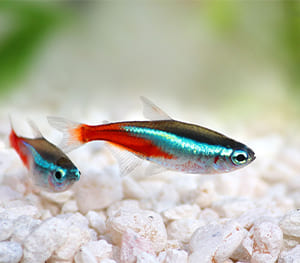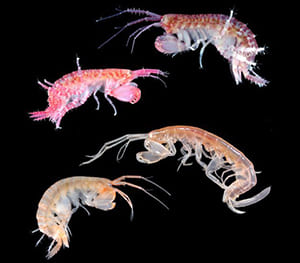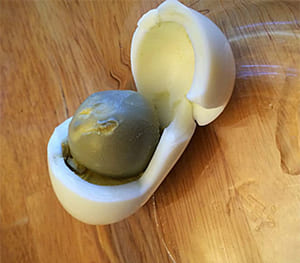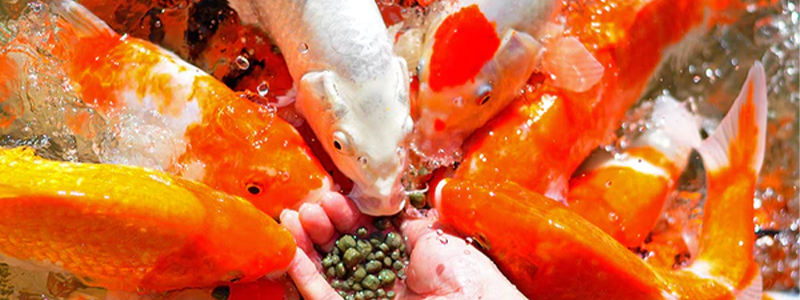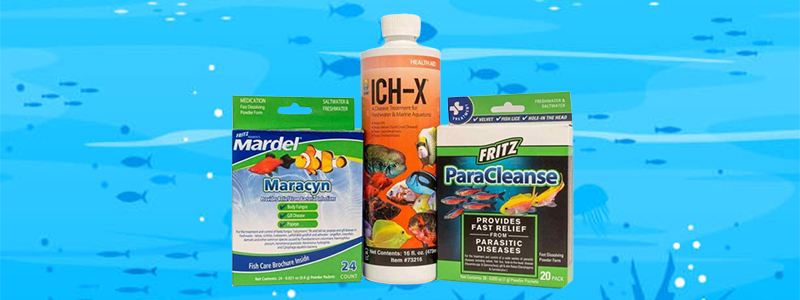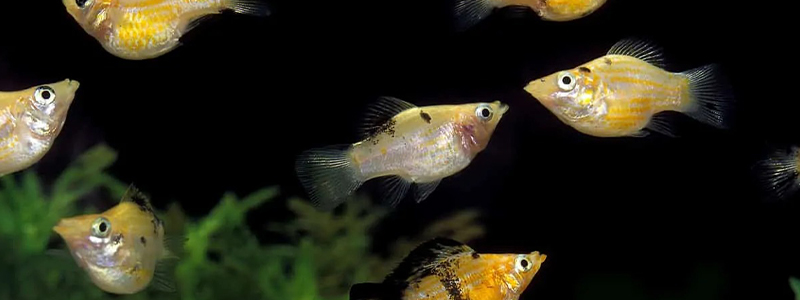Are you also running out of fish food or do you just want to treat your aquatic friends with new fish food alternatives? Well, then you’re in the right place!
Now, that you are curious about what delicious snacks as fish food substitute they can eat and how often, it’s a great idea to add variety to their diet. It’s enjoyable to explore treats even though high-quality fish foods satisfy their nutritional needs.
This article has everything you need to know if you’ve ever considered fish food substitutes for conventional fish flakes! Let’s give a read.
Disclosure: This article contains affiliate links. When you follow a link to purchase the products, I sometime earn a commission, at no additional cost to you. Read my full disclosure here
What are the Best Fish Food Alternatives?
Before we go in-depth about alternative fish food at home for carnivores, omnivores, and herbivores fish, check out the given brief list that includes the best fish food substitutes you will ever come across.
1. Serve Veggie
Serve your fish with boiled peas, chopped lettuce, or blanched spinach for a good dose of vitamins and minerals.
2. The Live Snack Period
Live options such as brine shrimp, daphnia, or bloodworms can be easily obtained in aquarium stores or online to add some spice to their diet.
3. Refreeze and Present
Treats like brine prawns, krill, and bloodworms can be frozen to keep things cool. Just be sure to defrost them before eating.
4. The Egg Yolks
Egg yolks that have been hard-boiled are a wholesome snack. Crumble a little bit, being careful not to overfeed and maintaining a clean tank.
5. Insects Party
Offer tiny insects, such as fruit flies or ants, to mix things up. Just make sure the insects are pesticide-free and the right size for your fish as fish food substitutes.
Going Green: Fish Food Alternatives for Herbivore Fish
While many fish species enjoy nibbling on plants, very few are true herbivores that only eat plants. These fishy companions have flat canines, ideal for gnawing on their vegetable feast until their tiny tummies are full. Consider giving your herbivorous fish the following fish food alternatives:
1. Cooked Root Vegetables
For a filling and substantial fish food substitute for supper, serve some boiled root vegetables, such as potatoes, carrots, cauliflower, pumpkin, and more.
2. Sweet Fruit Bits
To add some sweetness to their diet, introduce small pieces of apple, orange, watermelon, mango, or any other fruit that is suitable for fish.
3. Soft Peas
For a tasty and healthy snack that your herbivorous fish will undoubtedly love, soften and peel some peas.
4. Leafy Greens
Your plant-loving fish will love leafy greens like lettuce, cabbage, and other greens that are high in nutrients and fiber.
5. Greens in the water
For added variety in their diet and to replicate their natural habitat, think about adding aquatic plants like duckweed.
Fish that are herbivorous are typically easier to please than their carnivorous companions with fish food alternatives. They won’t be phased by switching from regular fish food to fresh fruits and vegetables; in fact, they’ll welcome the menu change!
How to Give Peas as Alternative Fish Food at Home to the Fish?
- In a saucepan, combine 16 oz. peas and ½ cup water.
- Bring to a boil, then simmer, covered, until soft, for three to five minutes.
- When the peas are cool, drain any extra liquid.
- Present the fish with the chilled peas.
How to Give Leafy Greens Alternative Fish Food at Home to the Fish?
- Buy fresh spinach from any market.
- Thoroughly wash the spinach with hot or running water.
- Finely chop the spinach so that the pieces fit your fish.
- Give your fish some chopped spinach as food.
- Take any leftover food out of the fish tank.
- As an optional addition for extra variation and nutrition, think about serving cooked or steamed spinach.
All-Meaty: Fish Food Alternatives for Carnivore Fish
Even though they are seen nibbling on plants, carnivorous fish lack an efficient digestive system that allows them to break down plant matter.
Make sure they eat fish food substitutes that are high in meat to satisfy their carnivorous nature and to make sure they get the right nutrients. Carnivorous fish, with their large mouths and pointed teeth, value the diversity that frozen or live foods offer over pellets or flakes.
The following are some fish food substitutes you can feed to your carnivorous fish:
1. Blood worms
A well-liked option, blood worms are the perfect alternative fish food for goldfish that give them a treat full of protein.
2. Prawns
Little prawns satisfy your carnivorous friends’ needs for protein and are a tasty and healthy alternative.
3. Maggots and earthworms
The alternative fish food for goldfish and other carnivores fish lies in maggots and earthworms
4. Tiny Insects and Daphnia
Daphnia and insects both add diversity to the diet and satiate the carnivorous urge.
5. Beef Hearts and Chicken Bits
If you want to serve your fish a filling alternative food for fish in the aquarium which is rich in protein, try these meaty options for dinner.
6. Smaller Fish
Introducing smaller fish can be a healthy and enticing decision.
Even though you might find these options uncomfortable, keep in mind that they are only treats for your carnivorous fish and aren’t meant to take the place of fishflakes’ balanced nutrients. Steer clear of oily fish and fatty meats to avoid fat accumulation around the fish’s heart.
Furthermore, if your fish is reluctant to try alternative fish food for goldfish, have patience. Carnivorous fish can be finicky eaters, and it may take them a few days to get used to a diet change.
How to Feed Live Food as Alternative Fish Food at Home to the Fish?
- Acquire live food, like bloodworms, daphnia, or brine shrimp.
- For live food, set up a different container and make sure it’s clean.
- Give your fish something to actively chase and eat by releasing live food into their aquarium.
- Keep an eye on your fish to make sure they are actively consuming the live food.
- To preserve the quality of the water, remove any uneaten live food right away.
- To prevent overfeeding, adjust the amount of live food according to your fish’s appetite.
How to Feed Beef Hearts or Chicken as Alternative Fish Food at Home to the Fish?
- Get some chicken pieces or beef hearts.
- Boil or steam them until they are cooked through.
- After letting the cooked meat cool, slice it into tiny pieces that resemble fish.
- Serve your fish with the cooled, chopped pieces as a treat.
- Watch to make sure the treated meat is being actively consumed by your fish.
- To preserve the quality of the water, immediately remove any uneaten portions.
- Treat them occasionally with beef hearts or chicken bits; do not include them in their diet regularly.
Versatile Options: Fish Food Alternatives for Omnivore Fish
You won’t be asking yourself, “What do I feed my fish if I run out of food?” if the fish in your tank are omnivores. – the options are essentially limitless. Omnivore fish can combine alternative food for fish in aquariums that are carnivorous and herbivorous in their diet.
Along with a variety of meat and plant-based options, think about including these things alternative food for koi fish on their menu:
1. Oats, corn, popcorn, and grains
Present a balanced blend of grains to your carnivorous companions like alternative food for betta fish for a filling and healthy supper.
2. Tiny Crustaceans
Add tiny crustaceans to their diet and give them a tasty, high-protein treat.
3. Yolk from Hard-Boiled Egg
Add hard-boiled egg yolk, a nutrient-dense food that can help produce shiny scales and brilliant colors, to their diet.
4. Snail
As an alternative food for koi fish, adding snails to their diet can be a tasty and healthy choice.
5. Zucchini
To add variety to your fish’s meals, remove the seeds and soft inner part of the courgette before serving it to them as a vegetable treat.
Although a combination of fish food substitutes is still the best option for giving your fish the essential nutrients it needs, switching to meat, fruits, and vegetables occasionally can improve the way your fish looks.
You can anticipate brighter, shiny scales and higher energy levels with this varied alternative food for fish in the aquarium.
How to Give Zucchini as Alternative Fish Food at Home to the Fish?
- Buy fresh zucchini also known as courgette from the market.
- Once the courgette is clean, rinse it under hot or running water.
- Dice the zucchini into tiny pieces that resemble fish.
- Serve your fish with the sliced zucchini pieces as a wholesome meal.
- Remove any courgette that is still raw or leftover from the fish tank.
- Fish that are omnivores might like leafy green vegetables like courgette. Try it out and see if your fish enjoy having this extra food in their diet.
Can Fish Eat Rice?
Goldfish and other fish may nibble on cooked or uncooked rice, but this is not a recommended practice. Though they might give it a shot, rice only offers carbohydrates and not much else nutritionally.
The worry is that rice might potentially expand in their stomachs, just like bread does. It is high in starch and deficient in important vitamins. It’s generally advised against giving fish rice. If you decide to do so, be sure to boil it beforehand to lower any possible hazards.
Can Fish Eat Bread?
It is not a good idea to regularly feed white bread to your fish. It may cause bloating and render your fish listless. White bread depletes your fish’s nutrition and damages its digestive tract when consumed in excess.
Additionally, breadcrumbs swell in water, clogging your tank. Selecting for healthier options is preferable. On the other hand, a small amount of bread might work in a pinch if you can’t get fish food for three or four days.
Conclusion
Whether done on purpose or as a result of some problem, experimenting with different alternative food for fish in an aquarium can be beneficial to your fish’s health in the world of fish care. For fish kept in captivity, a varied diet high in vitamins, minerals, and nutrients is ideal.
Remember, fish don’t have a fixed menu in their natural habitats. Therefore, don’t worry if you ever run out of their typical fish flakes. Certain fish species surprise you with their resilience and adaptability by flourishing on unique diets.

